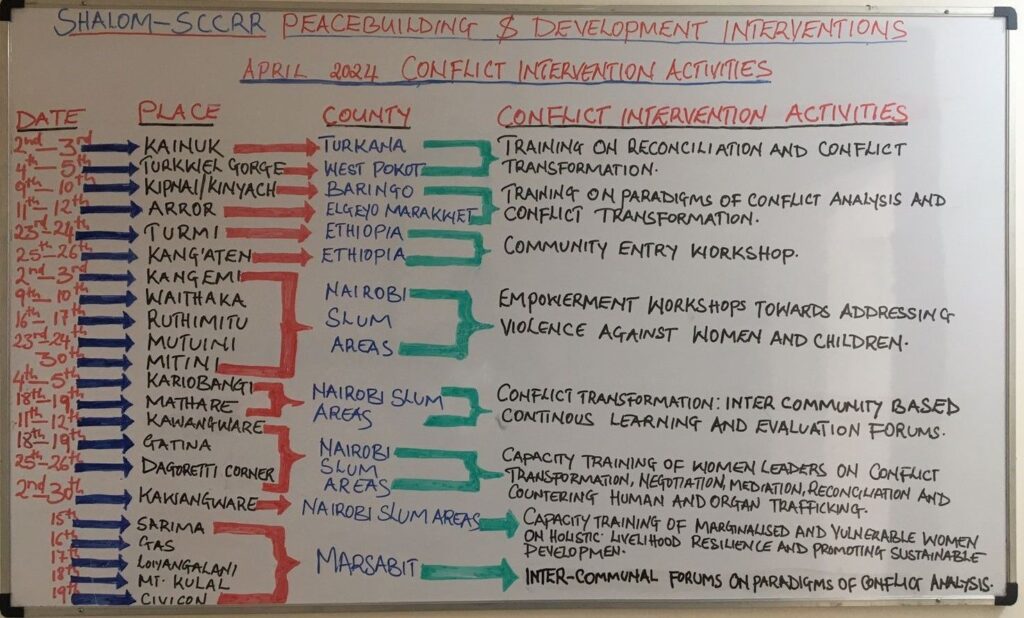(Pictures and captions added by the Shalom-SCCRR Communication Department)
Introduction
We are all aware, to various degrees, what manifest and latent conflict can do if it is not prevented, transformed, settled or resolved. Shalom-SCCRR’s peacebuilding and infrastructural development contributions for ethnic groups, communities, families, vulnerable women and children and others needing sustainable livelihood resilience and security in eastern Africa are second to none. Our interventions are evident in research, conflict transformation, peacebuilding, school-educational and other infrastructural development projects, enabling the empowerment and actualization of basic human and ontological needs.
From the standpoint of the humanitarian-peace-development nexus per se, it is self-evident that in African conflict environments where people are killed, maimed and displaced persistently, essential social and religious values of peace, truth, justice and mercy cannot take deep communal root. These gospel values are of utmost importance for people to live normal lives aspiring to the fulfillment of conflict resolution, sustainable peace, and reconciliation. Reconciliation as a process acknowledges the past, reframes the present and envisions a future where all sides are mutually committed in freedom to the human dignity, security, development and holistic wellbeing of each other.
In addition, it is also a reality that within the same conflict environments, communities cannot experience sustained development because periodically schools, hospitals, religious amenities, formation facilities and other essential institutional infrastructure become either anomalous, inoperable, or destroyed. Will we be forever rebuilding/rehabilitating development institutions and be morally and ethically indebted or legally obliged to operationalize humanitarian interventions and aid? Yes, if we are not committed, qualified, and engaged in addressing the underlying causes of conflict and bringing about the necessary transformation to end manifest and structural violence, leading to sustainable peace where reconciliation is nurtured persistently.
Moreover, and of incomparable significance, Shalom-SCCRRs methodology, process and results enables the opportunity for people living in transformed stable environments, as individuals and communities, to experience the gift of ‘God’s Spirit and Peace’ – the ‘Divine Presence’ with and within them. The experience of this ‘Presence’, not only urges us on but empowers us to be the transformers of conflict, the architects of reconciled societies centered on nurturing authentic life-giving relationships with God, our neighbor, oneself and creation. During the course of our lives, this profound experience liberates us from being overpowered by the experience, effects and knowledge of conflict and war. The experience of the ‘Divine Holy Spirit’ endows us with faith, hope and charity in our daily existence, to actively bloom where we are planted in caring for all humankind and their environments, realizing peace and reconciliation, enroute to an eternity in the ‘Peace of the Divine Presence’.
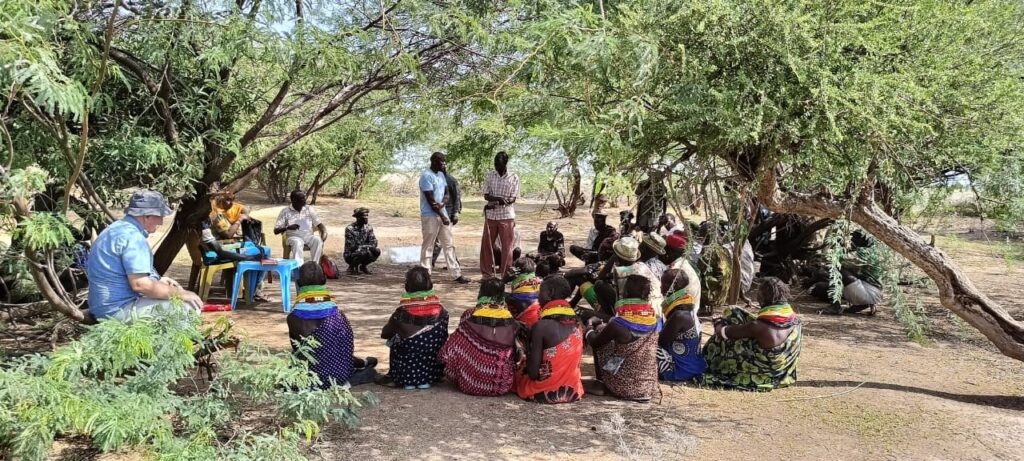
During 2023, Shalom-SCCRR, has enabled and empowered the completion of the following projects:
- 186 Workshops on Conflict Transformation analytical skill and Peacebuilding techniques (including 56 for women suffering acute violence) in 36 Conflict Zones in eastern Africa (https://shalomconflictcenter.org/2023-shalom-sccrr-results-and-achievements-2/);
- 64 Schools/Educational Development interventions, benefiting 15,844 students in 51 institutions (https://shalomconflictcenter.org/2023-shalom-sccrr-school-educational-developments-results-and-achievements/);
- 3,753 Influential Opinion Shapers trained with Conflict Transformation Skills-Peacebuilding Techniques, transforming Inter-Tribal Conflict and Religious Ideological Extremism (Terrorism);
- 2,239 Women from Urban Informal Settlements (Slums) trained with Conflict Transformation skills and Peace Building techniques addressing Violence against Women and Children (https://shalomconflictcenter.org/wp-content/uploads/2024/03/2023-SEC-Report-Shalom-SCCRR.pdf);
- 1,873 Women experiencing acute violence living in informal urban settlements (slums), supported with Holistic Livelihood Resilience Capacity through 56 training workshops (https://maryandjosephlifecenter.org/2023-shalom-sccrr-mary-and-joseph-life-center-mjlc-achievements/);
- The Shalom-SCCRR Prof. W.K. Omoka Research Library in memory of our late Director of Research, continues to develop into a valuable resource for our research and practitioner engagements. He is always remembered with great respect.
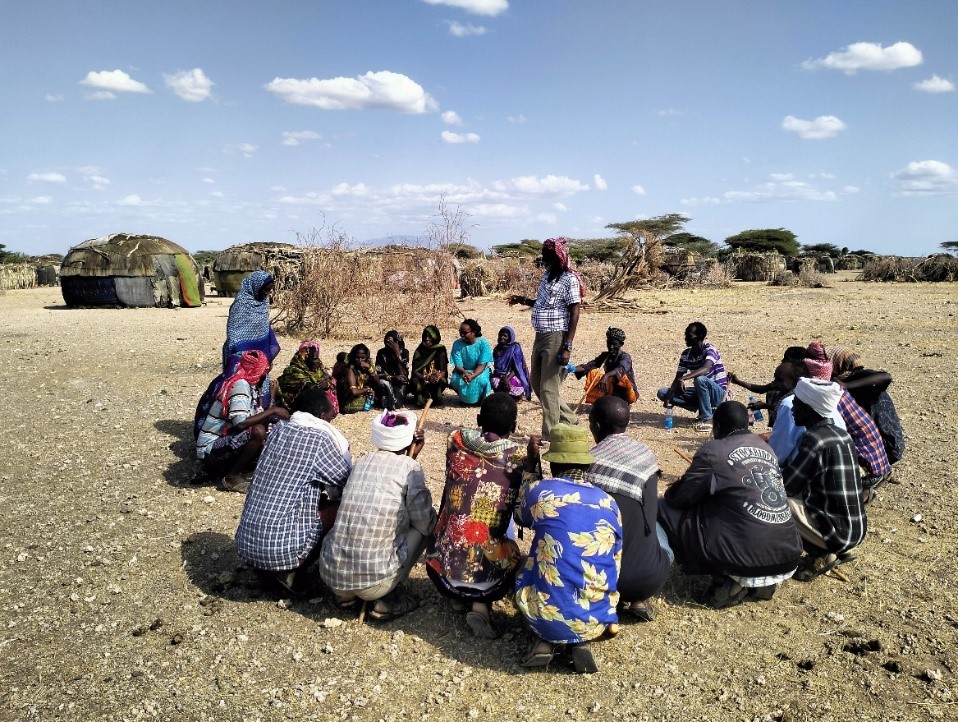
Immense thanks to so many dedicated generous supporters, workers, volunteers, and participants from conflict environments, whose solidarity and commitment underpin these accomplishments. All charitable donations that we receive are treated with utmost respect and prudence, providing exceptional return and satisfaction. Together we are making an enormous and meaningful direct and long-term difference. Numerous renowned International Universities in Eastern Africa and worldwide have benefited from modules-lectures addressing conflict transformation and countering religious ideological extremism, not forgetting Shalom-SCCRR’s accreditation to the United Nations (UN) for its integrity, methodology and vision (https://shalomconflictcenter.org/havard-kennedy-school-conversation-with-rev-dr-patrick-devine-and-paula-soumaya-domit/).
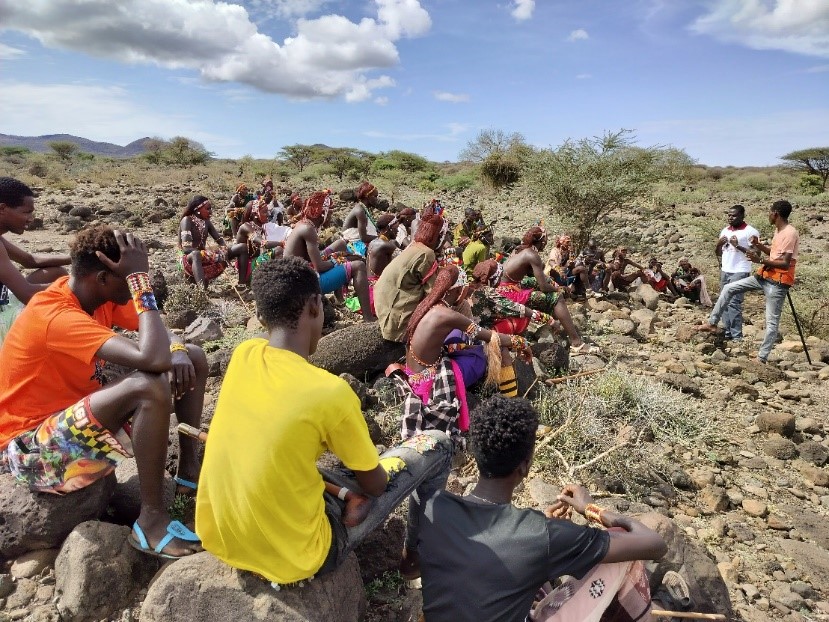
The Shalom vision: “A society where peace, justice and reconciliation prevails throughout Africa” inspires our mission which is “To work for a society free of physical violence and unjust social structures in Africa.” The core objective of Shalom-SCCRR is to attain conflict transformation and reconciliation for the people of Africa, evidenced by sustainable peace and integral human development.
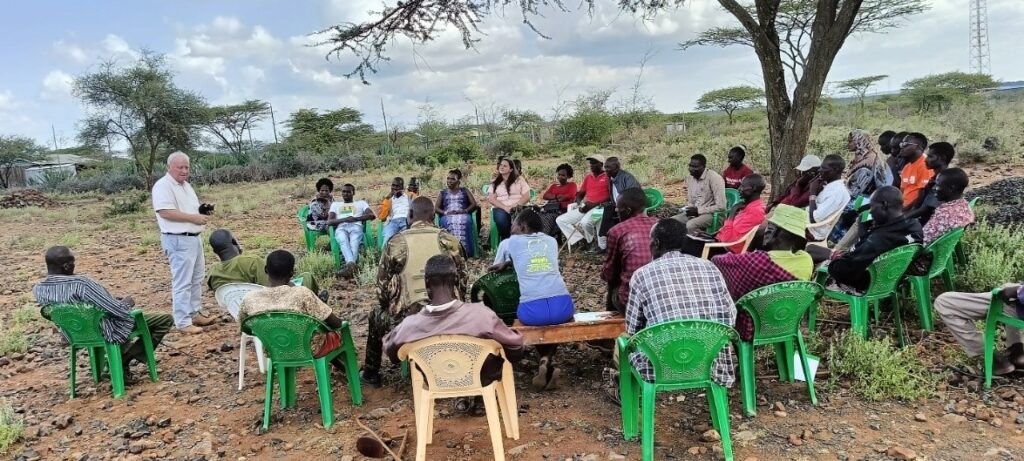
Shalom Empowerment Center Addressing Violence against Women and Children, and the Mary and Joseph Life Center
During 2023 these two centers developed and advanced in realizing their vision and objectives. Violent environments generate enormous suffering with women and children disproportionately bearing the brunt more often than not. The social conditions and challenges that women and children face on a daily basis in impoverished urban settlements and other marginalized remote locations, are extremely arduous and protracted. We actively train and engage hundreds of women influential opinion shapers in working towards breaking the vicious cycle of conflict in these locations. Since its founding, Shalom-SCCRR has focused on addressing issues of women and children (born and unborn) rights to their dignity, safety and livelihood security.
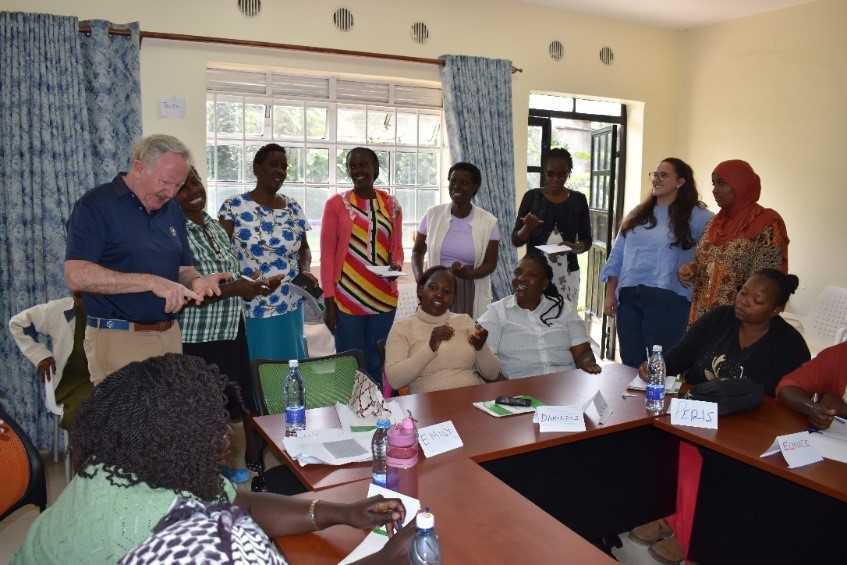
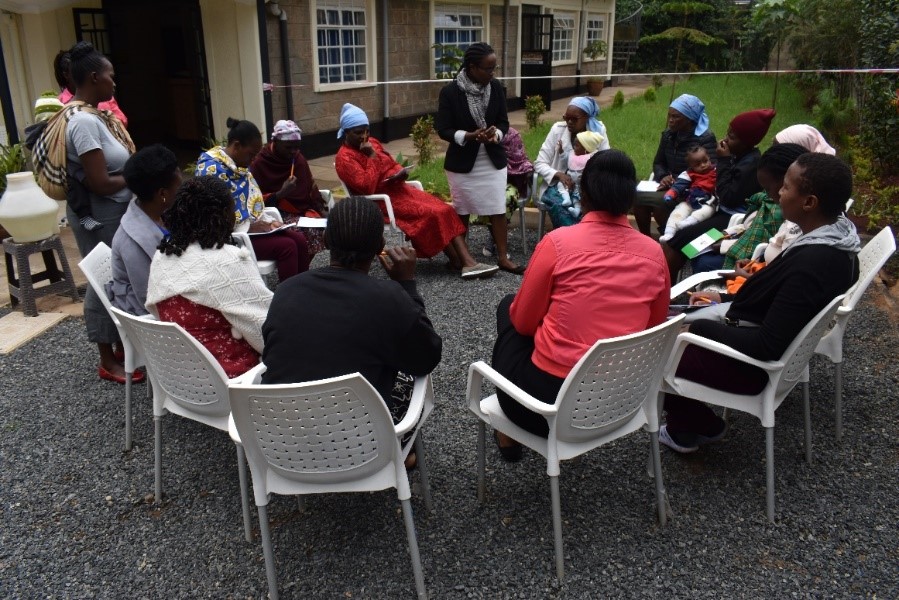
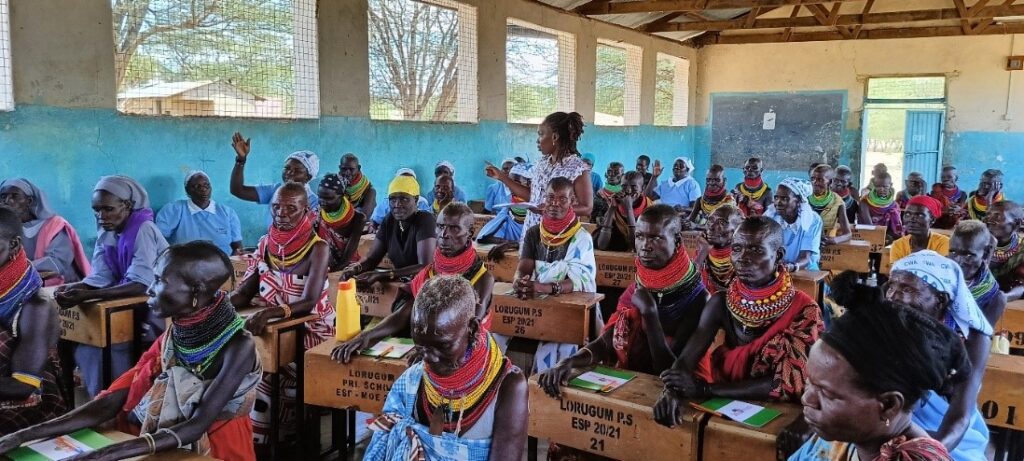
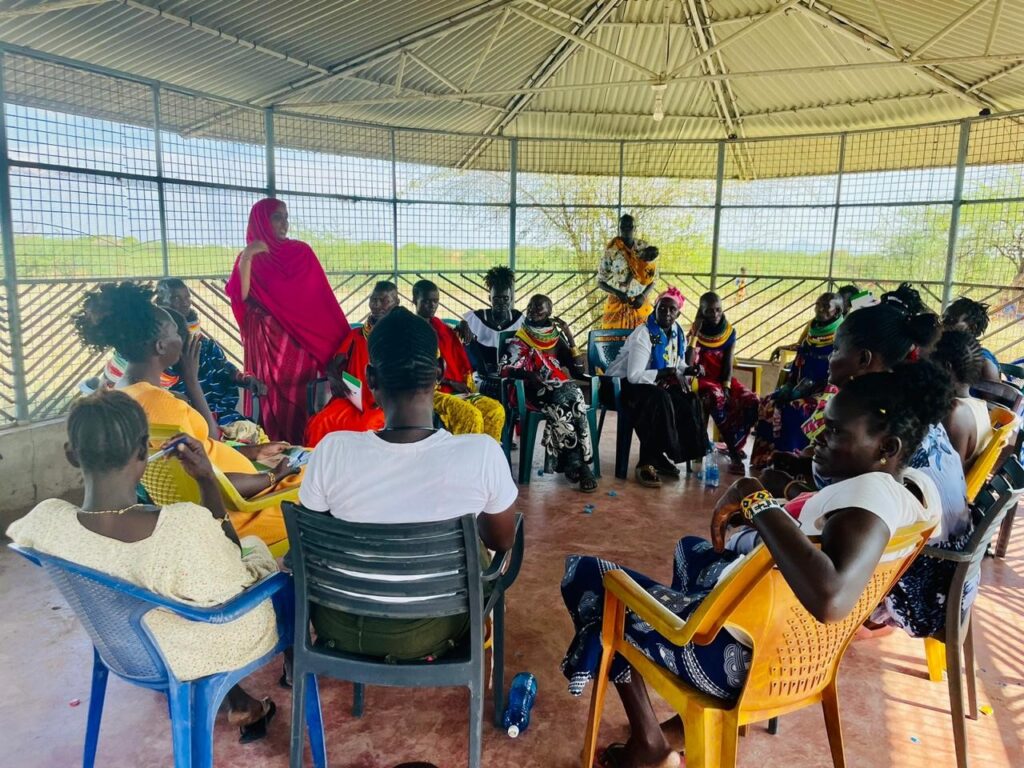
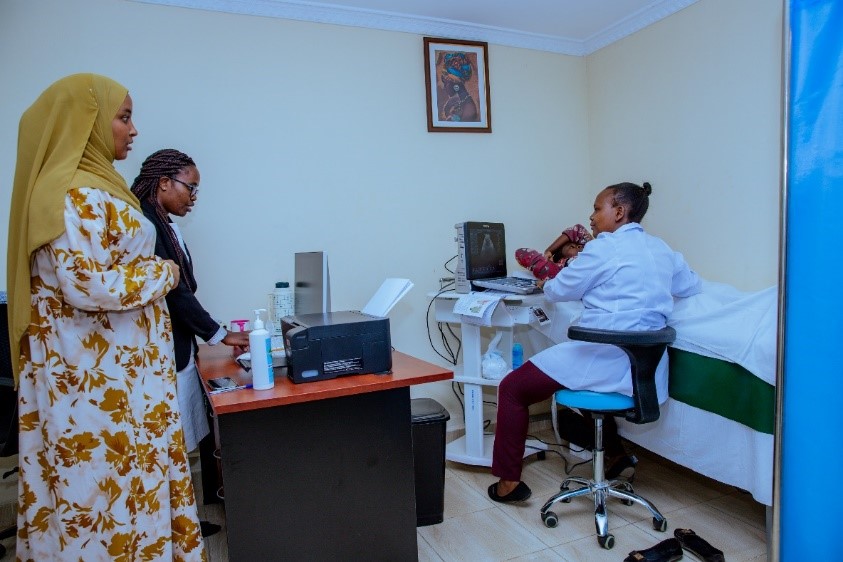
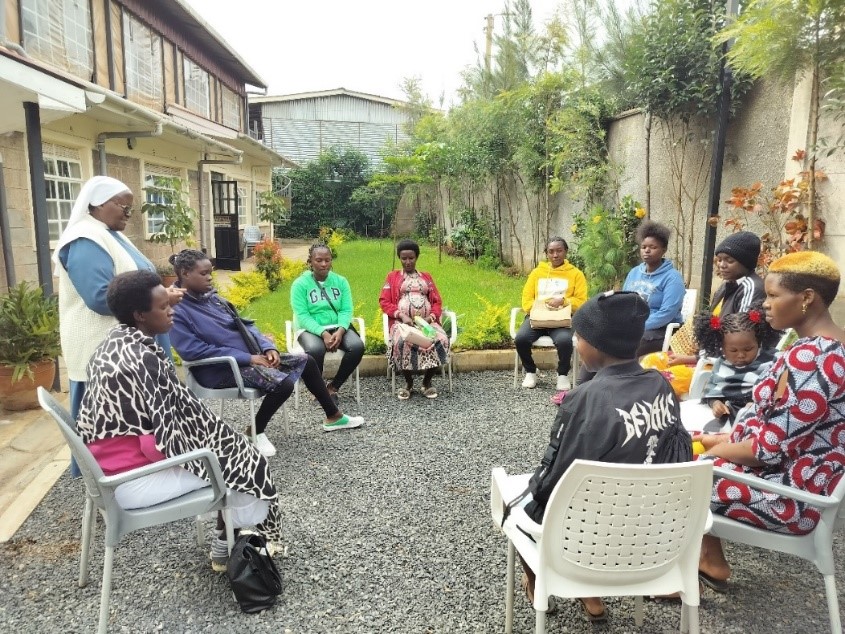
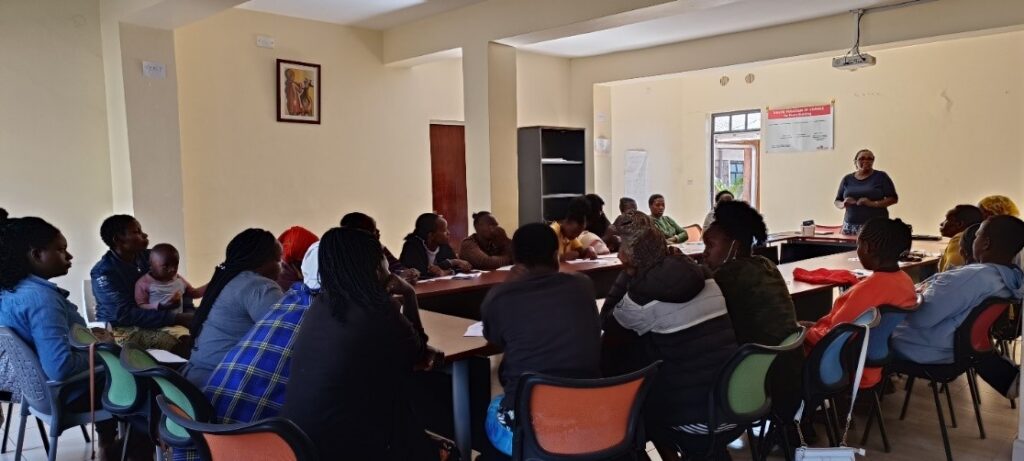
Shalom-SCCRR Objectives Operationalised
In line with the overall policy directions from the Shalom-SCCRR Board of Directors in Africa, our objectives were operationalised in 36 conflict zones where manifest and structural violence, religious ideological extremism, and violence against women and children needed to be transformed. Shalom-SCCRR’s humanitarian/peace/development/health interventions concentrated mainly on inter-ethnic and inter-religious communities in Turkana, West Pokot, Samburu, Marsabit, Nakuru, Kisumu, Isiolo, Nandi, Uasin Gishu- Eldoret, Garissa, Mombasa and Nairobi informal urban settlements (slums). Many of these conflict environments straddle borders where Kenya’s northern regions interface with Ethiopia, the Ilemi Triangle, Uganda, South Sudan, and Somalia. We made our first intervention into the conflict zones of DRC Congo during the course of the year (https://shalomconflictcenter.org/democratic-republic-of-the-congo-drc-shalom-center-for-conflict-resolution-and-reconciliation-sccrr-outreach-intervention-for-peace-a-dream-that-is-becoming-true/).
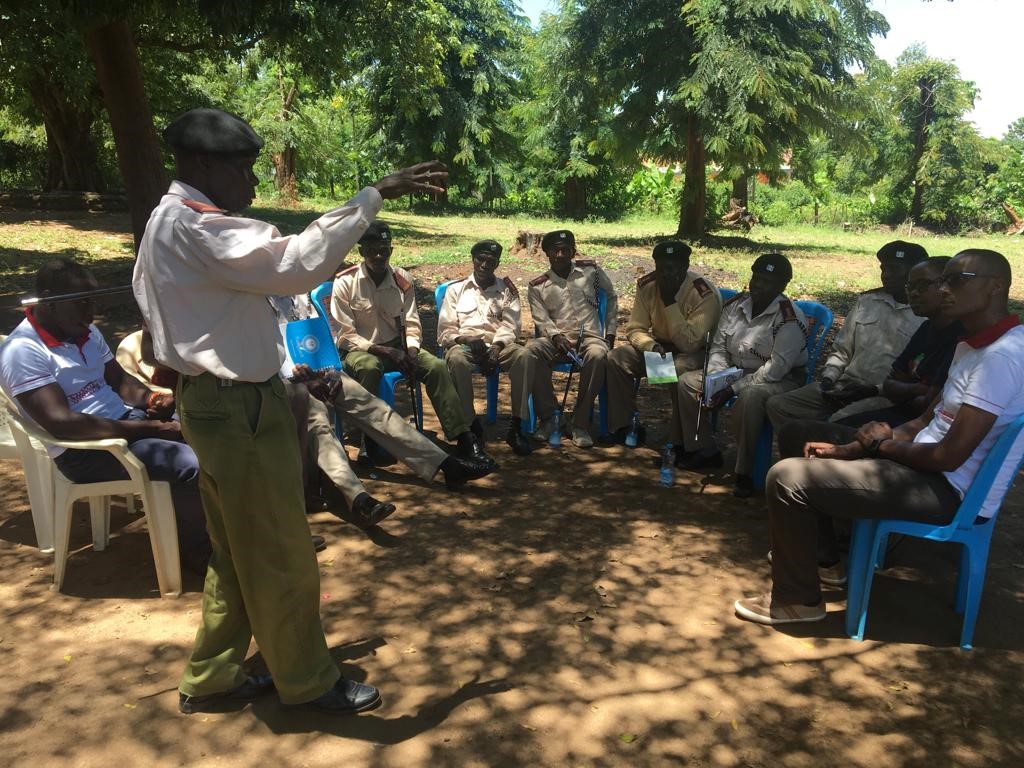
In Nairobi’s impoverished urban settlement areas (slums), where approximately two million plus people live, we engaged substantively and consistently and with the residents. One cannot over appreciate the generosity, planning, logistics, professionalism and hard work that were applied in these intervention processes on the frontlines of manifest and structural violence. The connectivity between our conflict transformation-peacebuilding interventions and infrastructural development activities, including attention to ongoing threats from Covid-19, continued to be of critical importance.
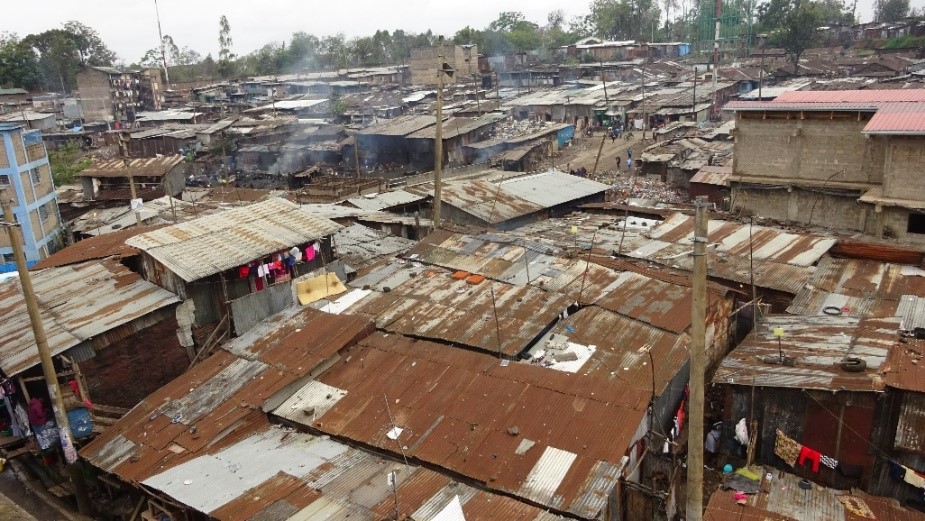
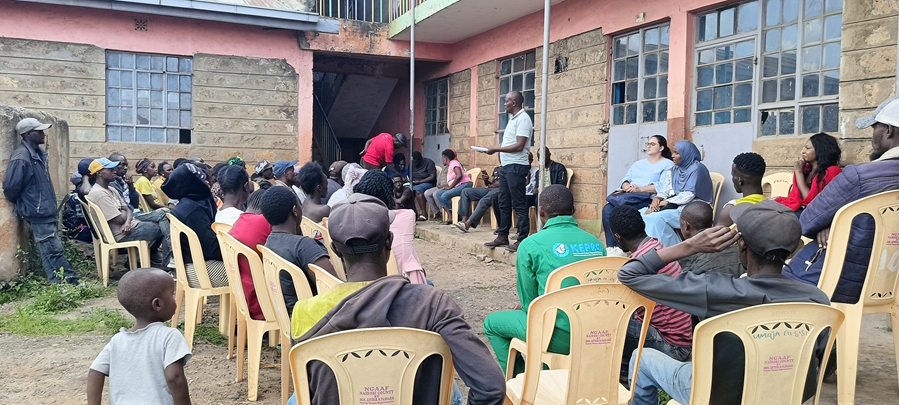
Governance and Fundraising
The Board of Shalom-SCCRR (Africa) were dedicated and thorough in providing governance leadership, oversight expertise and wisdom during the year. This strong structure and leadership underpin our performance, growth, authenticity and collaborations in delivering on the organization’s vision, mission, methodology and core values. As always, our accounts were audited in accordance with International Standards on Auditing (1SAs) and International Ethics Standards Board for Accountants Code of Ethics for Professional Accountants (IESBA code). The recent independently approved audited accounts are a core instrument in demonstrating the quality of Shalom-SCCRR’s governance, administration and project product delivery.
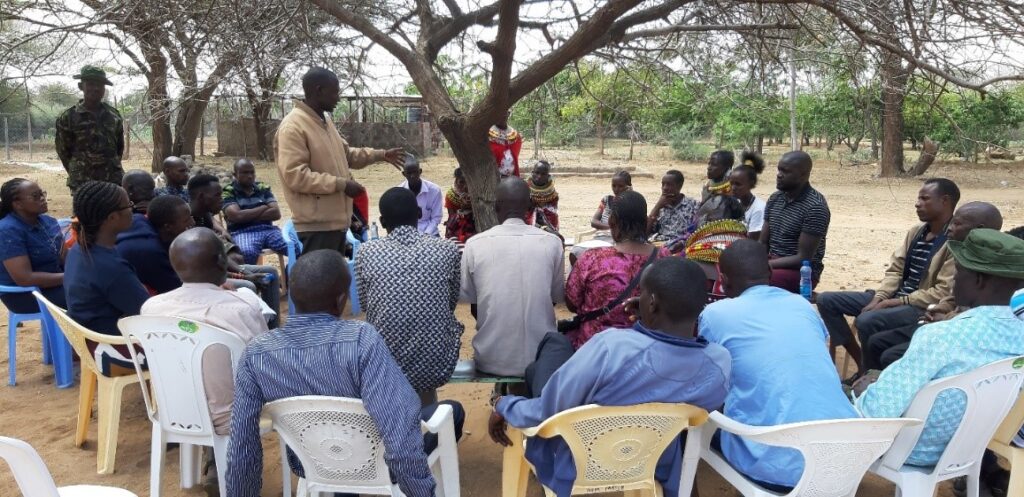
External fundraising, in collaboration with the contributions of local communities, to facilitate the realization of our vision and mission is critically important for success. The insightful enlightenment of the Shalom-SCCRR board members and management in eastern Africa is ever appreciated and respected. During 2023, we continued our close relationship and support to the fundraising efforts of our affiliate branches around the world. We welcome the ever-increasing number of corporate and individual donors to our support units. The gratitude of Shalom-SCCRR in Africa and that of our beneficiary communities is immense.
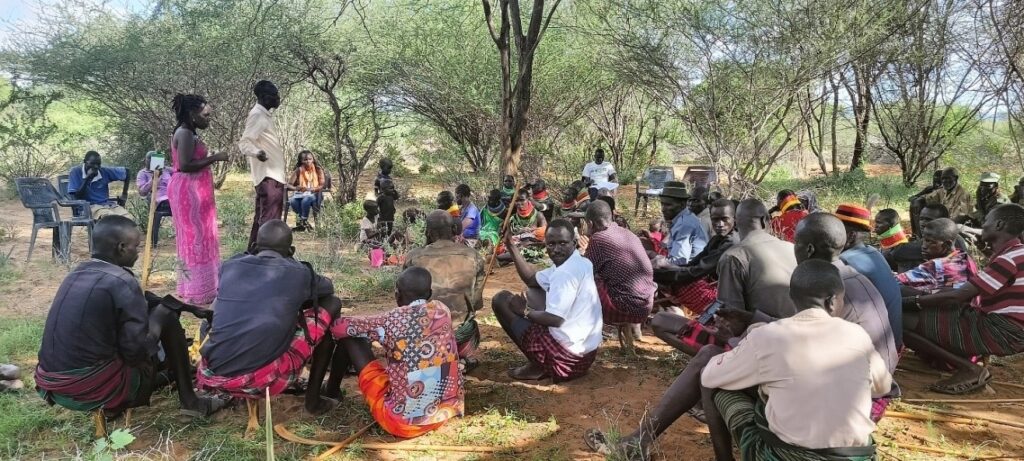
Appreciation to our Donors and Supporters
We are ever grateful to all donors, partners and stakeholders all over the world who continue supporting the work of Shalom-SCCRR. Since the organisation’s founding in Eastern Africa, its registered units, and committees, in the USA, Republic of Ireland, N. Ireland and Britain have provided over 90% of our funding. This support further strengthened Shalom-SCCRR’s resolve and commitment to its vision and mission during 2023. We also continued the consolidation and updating of our organizational governance and range of policies to ensure good practice, accountability, effectiveness, transparency, and integrity. Institutional strength is critically important because it impacts directly the work we do in conflict environments. The whole work-ethic process within the organization is constantly appraised in respect to governance, performance, authenticity, growth and collaboration.
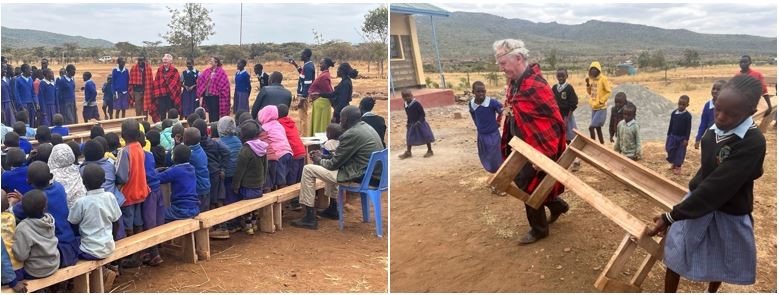
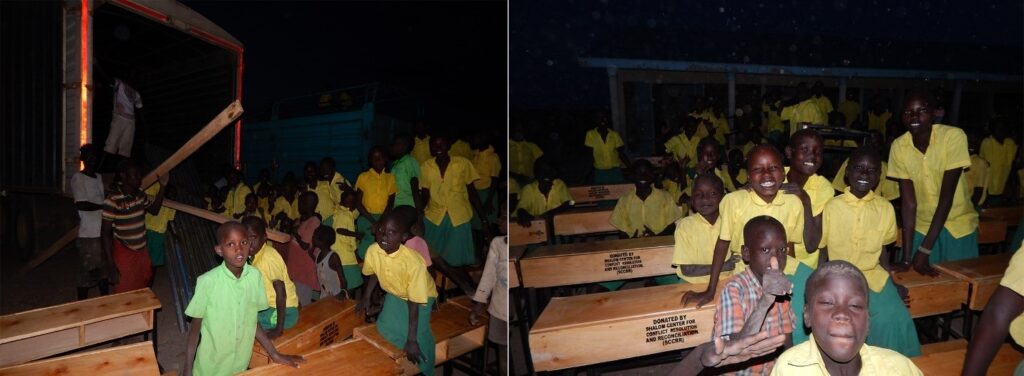
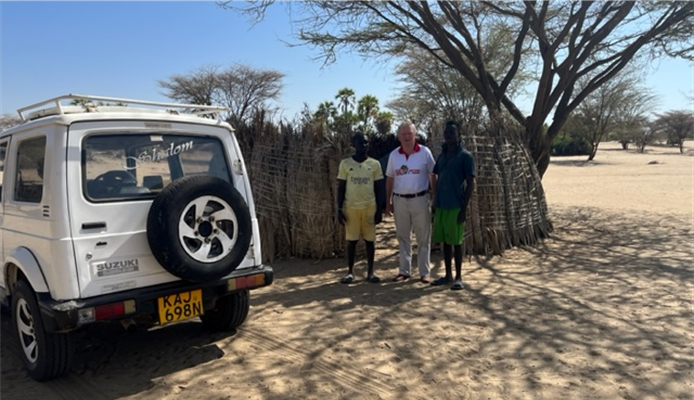
The Shalom-SCCRR team is ever diligent in maintaining the organization’s high operational standards that are recognized nationally, regionally, and globally as evident in its prestigious accreditation by the UN and invitational attention from universities and other relevant institutions around the world. The approach, with its emphasis on community leadership, stakeholder participation, high technical competency, logic models, results frameworks, stories of change and advocacy linkages has received international profile acknowledgement in the context of current best practice within both the peacebuilding and development sectors.
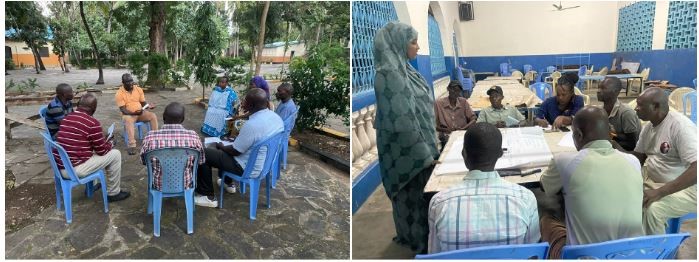
Appreciation to our Management and Team Members
Our gratitude goes to Shalom-SCCRR’s management and team members for their accountability and dedication to high standards during the year. The board again offers its deep appreciation to Rev. Oliver Noonan MA, (PhD Candidate) Executive Director, for his professionalism in stewardship, project oversight and administration. The gratitude of the board also extends to the Senior Project Officer, Godfrey Okoth MA, (PhD Candidate), Mrs. Judith Akedi Otsieno MA and Esther Kibe (MA), lead project officers at the Shalom Empowerment Center (SEC) and the Mary and Joseph Life Center (MJLC), the whole Shalom-SCCRR team and all organizational partners, for their conflict transformation/peacebuilding research, fieldwork, school-educational development projects supervision, monitoring-evaluation-recording-learning, communication, and the quality of progress accomplished during the year. Our appreciation extends to our finance department and accountant Kipkoech Kipruto ACCA (Association of Chartered Certified Accountants), (B. Com candidate), his assistant accountant Remy Ndiema CPA (Certified Public Accountants), B.BM, and all involved in auditing our accounts, for their integrity, professionalism and rigour.
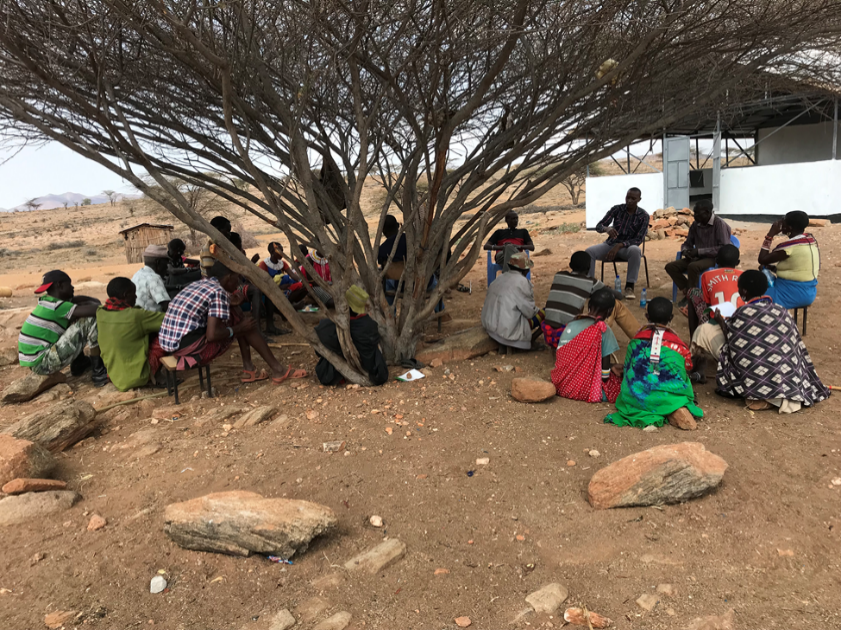
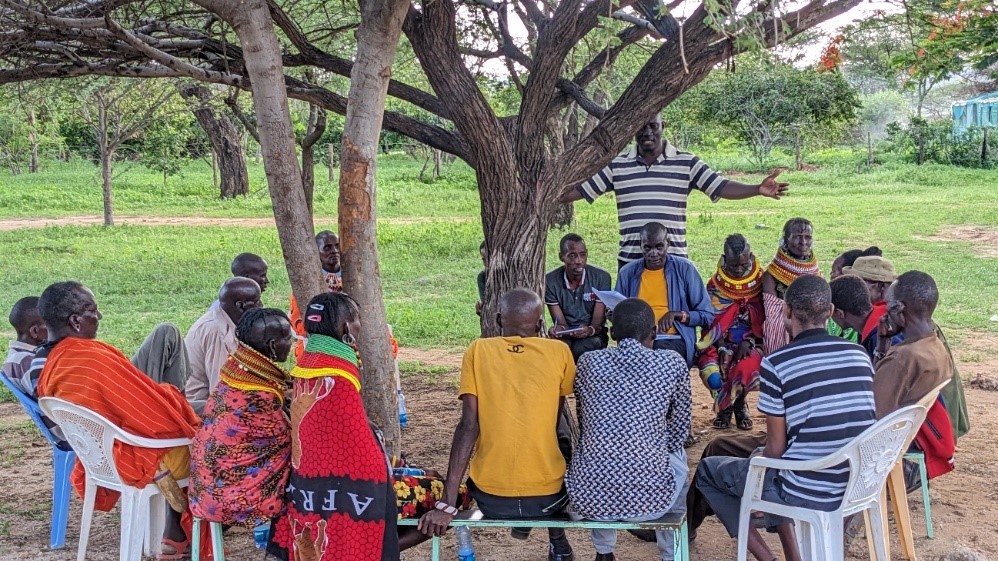
As a result of the past 14 years’ work, the lives of hundreds of thousands of men, women, children and families, living previously in dire conflict and underdeveloped circumstances, have been constructively transformed. You have had an enormous positive influence on the livelihood resilience of present and future generations providing human security and joyful hope. Because of the work of Shalom-SCCRR, it is innumerable the number of individuals, families, and communities who are alive and well today, experiencing the fulfilment of living in more just and stable societies. They are increasingly able to meet their basic human and ontological needs, actualize their potential, interact with the ‘Divine’, and the environment in a wholesome, tolerant, inclusive and reconciled manner (https://shalomconflictcenter.org/wp-content/uploads/2024/04/LV-14-Years-of-Shalom-SCCRR-Report.pdf).
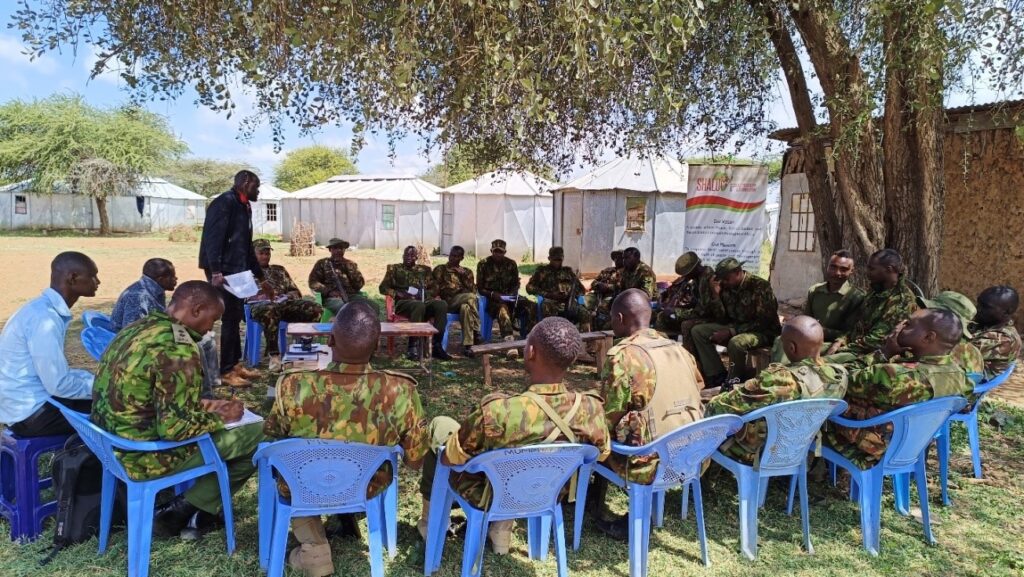
Engaging the Future with Optimism, Judiciousness and Dynamism
As a process, ‘Shalom’ is about achieving integral human security and development among and between people. All of us, together, can bring about deep-rooted transformation and resolution of conflict-generating factors and structures-institutions, through rigorous research, conflict management training, peace education, problem-solving workshops, developing inter-ethnic and inter-religious infrastructural projects – especially educational institutions and other ‘human rights’ edifying initiatives (https://shalomconflictcenter.org/human-rights-and-development-shalom-sccrrs-intervention-methodology-in-pursuit-of-sustainable-peace-within-eastern-africa-conflict-zones/).
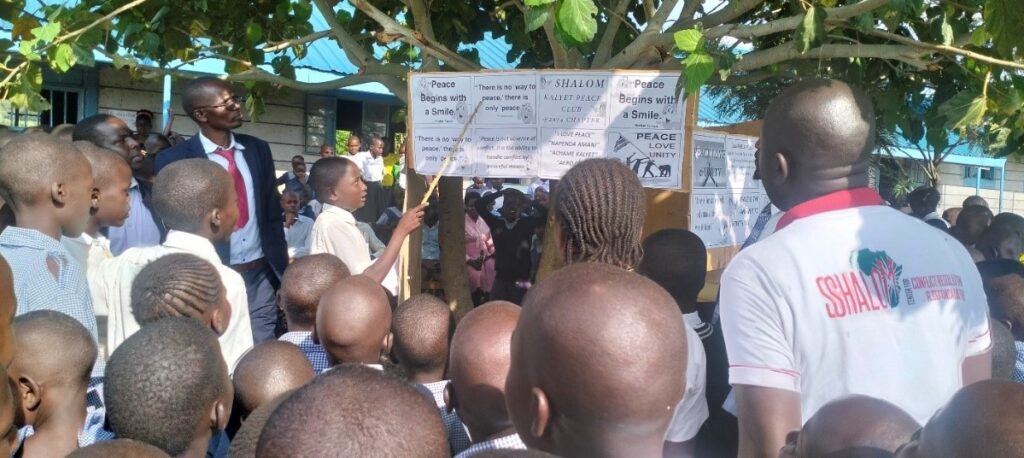
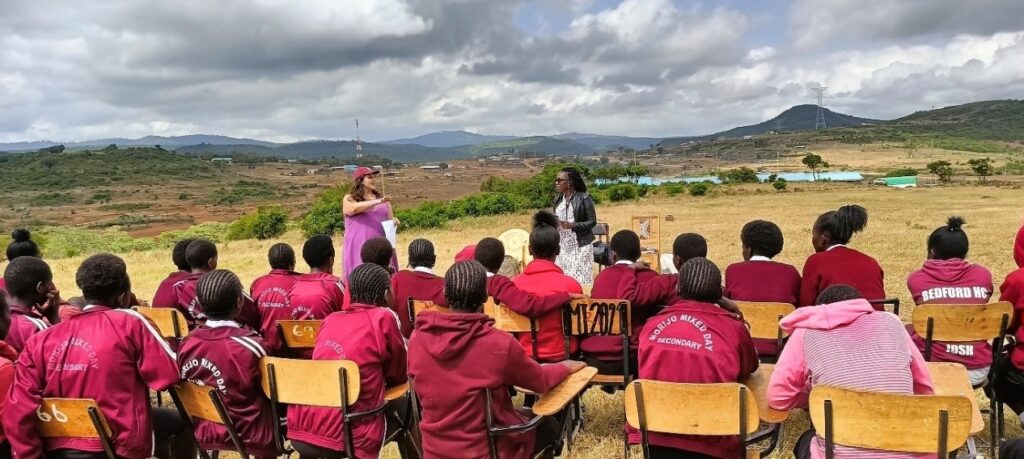
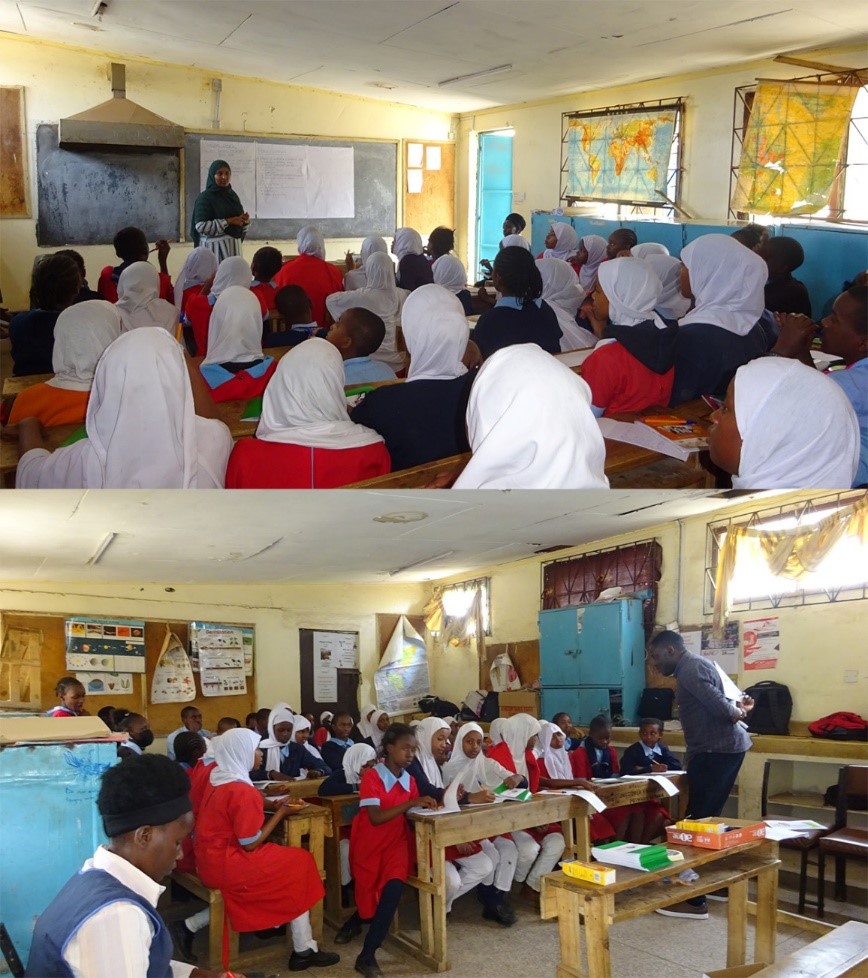
The Shalom-SCCRR vision points to adherence to the right long-term policies in our approach to conflict resolution and reconciliation, resisting to settle for ‘short term political quick fixes’ or the transient gains of myopic insular partisanship. Many people in remote, violent and poverty-stricken environments are waiting to experience ‘Shalom’. Right long-term policies should always take precedence over the lure of mere myopic short-term political agendas.
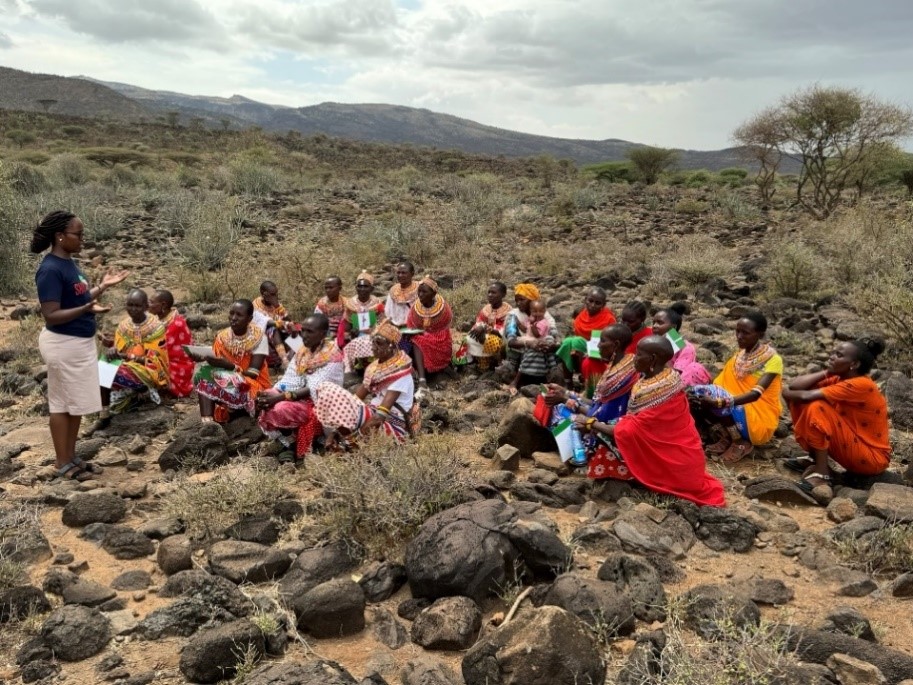
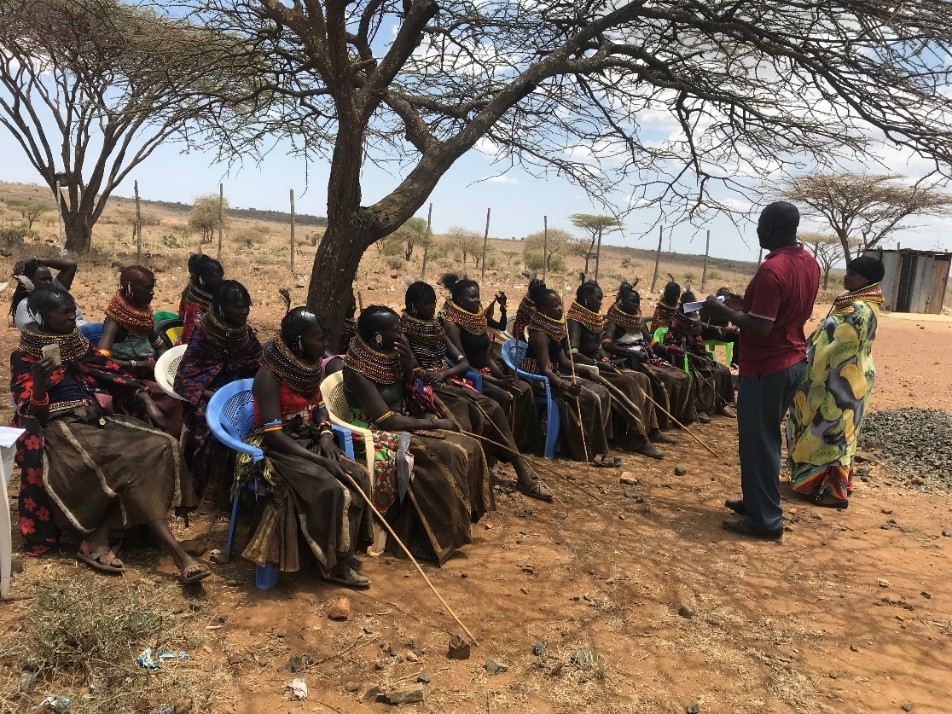
We should keep in mind that a key factor needed for evil to triumph, whether in the form of violence, injustices, deceit, maliciousness or envy, is for good people to do nothing; theory without practice is empty and practice without theory is blind. From a short and a long-term perspective, being an armchair general or parasitically sitting on the fence while millions suffer from manifest conflict and marginalization is an appalling indictment. In thanking our donors again and those who offer prayers and well-wishes, let me assure you all that Shalom-SCCRR will continue to be diligent in fulfilling our vision, mission and objectives to the highest standards in the years ahead.
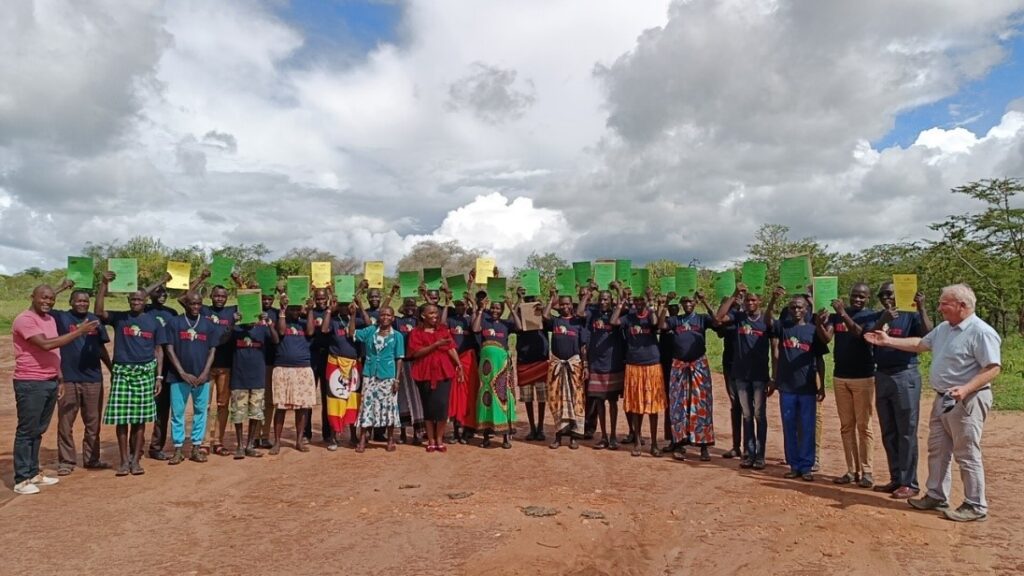
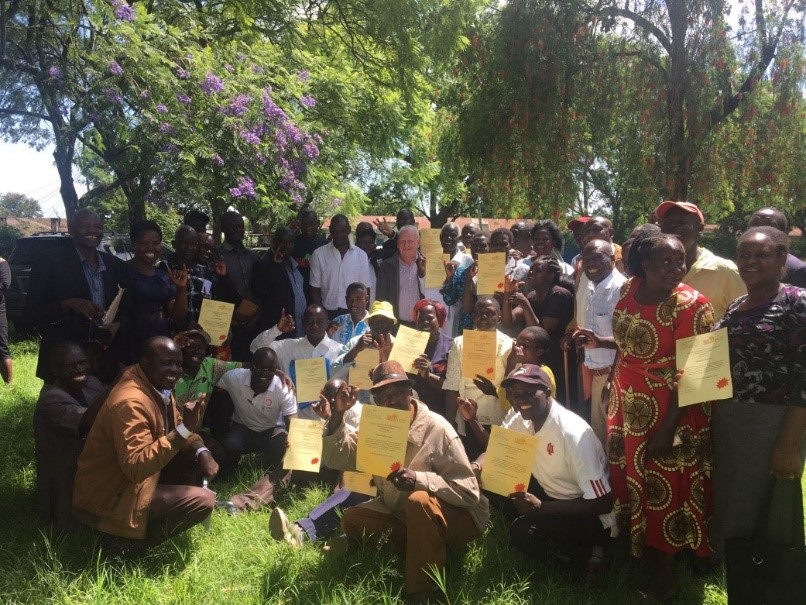
There are no limits to the positive interventions that can be made to bring about sustainable peace, development and reconciliation. We all need continual assistance, education and formation in order to know what makes for peace! As Jesus from Nazareth once said in another context (Luke 19;41-42), ‘if this day you only knew what makes for peace’.
Our conflict transformation, peacebuilding and integral human development interventions going forward will center on acknowledging the past, reframing the present, and envisioning a future built on the authentic realization of Shalom-SCCRR’s vision and mission. The road to peace is not easy but the quest is essential in order to sustain human dignity and survival, environmental security, and provide the utmost opportunity to experience the ‘Divine Holy Spirit’ in all its vitality.
SHALOM, SALAAM, SALEM, SALAMU,

Rev. Patrick Devine PhD
Chairman, Shalom-SCCRR, Kenya-Africa
SHALOM-SCCRR TEAM IN AFRICA DURING 2023
Board of Directors
Rev. Dr. Patrick Devine, Chairman
Prof. Peter Wanyande, PhD, Board Member (Eastern Africa -Research)
Dr. Michael Comerford, Board Member, (South Sudan)
Rev. Oliver Noonan MA (PhD Candidate), Executive Director
Ms. Rosaline Serem, MBA, Board Member, (Kenya)
Mr. Sean White, MSC, Board Member (Kenya)
Rev. Janus Machota, BD, BA (MA Candidate), Board Member, (Tanzania)
Management
Mr. Godfrey Okoth MA (PhD Candidate), MA, Senior Project Officer
Mrs. Judith Akedi-Otsieno MA, Project Officer, Team Leader
Mr. Francis Mwangi MA, M.E.R.L Officer
Mr. Austin Ngacha, MA, Project Officer, Team Leader
Mr. Arthur Magero, MA, Project Officer, Team Leader
Ms. Esther Kibe, MA, Project Officer, Team Leader
Mr. Kennedy Odhiambo, MA, Project Officer
Mr. Moses Osiro, MA, Project Assistant
Ms. Ilhan Ali Salah, BA (MA Candidate), Shalom-SCCRR In-Training Capacity Program
Sr. Jovalet Ariho BA (MA Candidate), Shalom-SCCRR In-Training Capacity Program
Mr. Kipkoech Kipruto, B.Com., ACCA, Accountant
Mr. Remmy Ndiema, B.BM, CPA, Accountant
Ms. Vivian Adhiambo Omondi, BA (MA Candidate), Shalom-SCCRR In-Training Capacity Program
Mr. Ken Otieno Dipl. PPM, Transport /Logistics Coordinator
Interns
Ms. Jacinta Nyambura Njeri, BA (MA Candidate), Shalom-SCCRR In-Training Capacity Program
Mr. Salomon Ajua M’bekemoja, BA (MA Candidate), Shalom-SCCRR In-Training Capacity Program
International Volunteer Consultants Background Experience
Ms. Paula Soumaya Domit, MA Harvard Kennedy School, Masters of Public Policy Program
Rev. Dr. Emmanuel Tembo DRC Congo and Great Lakes Region
Mrs. Nancy Mirera, MA Counselor-Psychology, Mental Health Worker, Mediator in A.D.R
Rev. Dominic Wabwireh, MA
Society of African Missions, International Media Center, ISCPA Paris – Institut supérieur des médias
Mr. Patrick Geysen, MA Former Deputy Head of EU Delegation, Djibouti
Ms. Sheena McMullen, MA Peace and Reconciliation Studies, N. Ireland/UK
Mr. Andrés Oviedo, MA
International Relations, Universitat Autónoma de Barcelona). Postgraduate Studies in Human Rights, International Humanitarian Law, and Culture of Peace. Liaison Officer at the United Nations Verification Mission in Colombia (UNVMC).
Ms. Matilda Brolin, LLM.
Harvard Law School, Embassy of Sweden to the Democratic Republic of the Congo
Ms. Fabiana Pardi Otamendi, LLM
Harvard Law School, UN Human Rights, Freshfields Bruckhaus Deringer, France
Dr. Conrad Bosire Constitutionalism and Devolution, Kenya, East Africa

